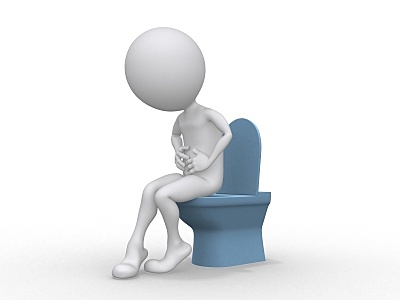6 Things You Should Know About Incontinence

If you haven’t experienced incontinence personally, it can be easy to think that it’s simply about having an embarrassing accident. There are many misconceptions surrounding the condition, mainly because we do not talk openly about it.
Here are 6 facts about incontinence that may surprise you.
1. Incontinence may be part of a bigger problem
Incontinence can often be a symptom of a condition which also causes other symptoms. For example, people with Spina Bifida struggle with incontinence because of nerve damage controlling the bladder. Someone with incontinence problems may also be dealing with painful bladder spasms, retention (not being able to empty their bladder completely) and chronic bladder pain. While some people experience bladder weakness with no other symptoms, another person can be dealing with more complex issues.
2. Incontinence can be an expensive condition
While the NHS provide continence pads on prescription for people with severe incontinence, most people with mild to moderate incontinence don’t receive any support and may have to buy their own continence products. Even those who are eligible for pads on prescription may find the ones they receive just aren’t suitable or they do not get enough to cope with their level of leakage (though a specialist continence assessment can sometimes help to minimise this). In many cases people have to buy their own incontinence pads which can be expensive. There can also be extra costs due to needing extra bedding, clothes and specialist chair cushions that are designed for accidents. Finally, incontinence can lead to higher laundry costs as bed sheets and clothes may need to be changed much more frequently than usual.
3. Toilet visits can actually take a long time
Despite the urgency of a sudden accident, people with incontinence can actually take a lot longer to go to the toilet. Those whose bladders retain urine as part of their condition can spend twenty minutes or longer just trying to have a wee. It can be very frustrating when a bladder takes ages to empty when you want it to then seems to be in an extreme hurry to empty when you don’t. Bowel incontinence can actually be a symptom of severe constipation as the looser poo builds up behind the blockage. For these people, going to the toilet can be a lengthy and painful process. One of the more frustrating continence issues is when there is a frequent and urgent need to get to a loo quickly but then emptying the bladder or bowel is actually very difficult.
4. Pain can be a big part of incontinence
As mentioned above, incontinence can be part of a bigger picture. For some people, that bigger picture can include pain. Conditions such as neurogenic bladder can cause very painful bladder spasms which can be debilitating. Severe Irritable Bowel Syndrome (IBS) can result in bowel accidents but can also cause visceral hypersensitivity where the bowel feels like it is on fire when nerves are stimulated. For some people, pain can come before a toilet visit or it can be a result of the bladder or bowel emptying. In the latter, this can mean a simple wee can be followed with hours of crippling pain.
Pain can also be the result of the daily treatments needed to go to the toilet. For example, some people with bladder incontinence also have a very sensitive urethra which means every time a catheter is used to empty the bladder it causes a great deal of pain in the urethra. This can make the next catheter use even more painful.
5. Managing incontinence can be time and energy consuming
When your bladder or bowel doesn’t empty properly it then becomes necessary to use a device or treatment to do the job. This can mean using a small catheter to empty the bladder a number of times a day or having a more permanent catheter which allows the bladder to drain into a collection device. Some people have a small bag attached to their abdomen which collects urine via a stoma. There are also people who cannot empty their bowels properly so they depend on an irrigation system which flushes the bowel out. There are many different methods of doing the job a faulty bladder or bowel can no longer do and they all require significant time and energy, sometimes numerous times a day. These essential treatments can be difficult to manage for some people so they may require a second pair of hands to help.
6. Incontinence can lead to mental health problems
When incontinence costs money, results in pain and means you spend a great deal of time in the bathroom, it is no surprise that it can have an effect on emotional wellbeing. Depression and anxiety are more common in people with incontinence issues than those without for a number of reasons. Incontinence can prevent a person from venturing far from their home in fear of having an accident, while another person may struggle with the stigma of having a continence issue. Quality of life can be affected by bladder and bowel problems and social isolation can occur when other symptoms such as pain have a disabling effect on a person.
Despite the difficulties incontinence can bring, it is important to remember that it can often be managed with the right approach and support. Incontinence affects 1 in 8 people over the age of 18 in the UK which means there is probably someone with a continence issue working in your office or shopping at your local shop. People living with incontinence may need to spend more time than others thinking about the next toilet visit but it doesn’t mean they have to be ruled by it.
Photo by David Castillo Dominici at freedigitalphotos.net
Do these facts about incontinence surprise you?
Share this article:
by Carrie Beckwith Fellows



About the author
Hi I'm Carrie, I live in rural Northumberland. I have complex health issues including severe intestinal dysmotility and bladder dysfunction caused by Ehlers Danlos Syndrome. You can follow my blog at www.ruralteacake.com.



